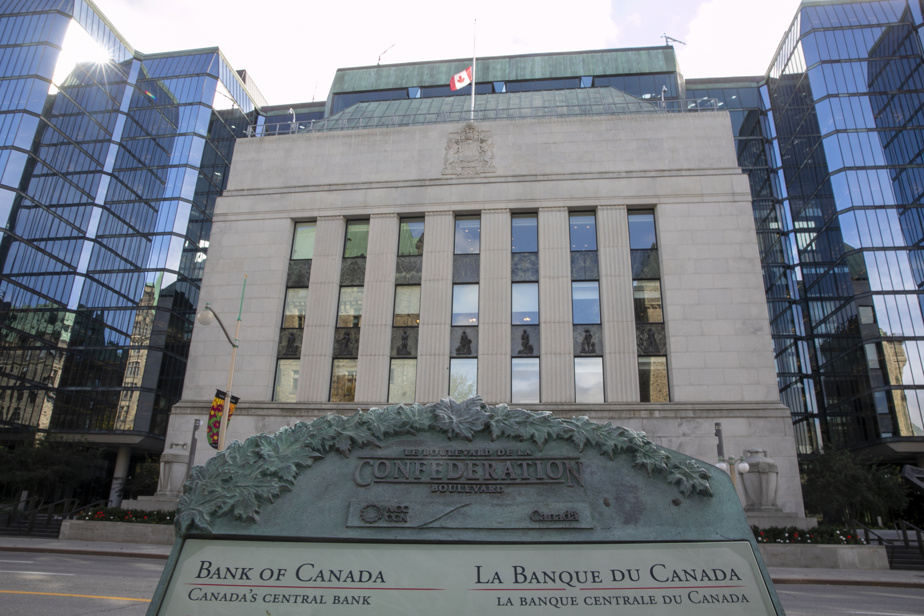
(OTTAWA) The Bank of Canada could lose up to $8.8 billion over the next few years, according to a new report, posing a challenge to the central bank’s communications.
The CD Howe Institute document estimates total losses to be between $3.6 billion and $8.8 billion over the next two to three years.
“What determines the size of the losses really depends on interest rates over the next two or three years,” said Trevor Tombe, professor of economics at the University of Calgary and co-author of the report.
In the fall, the Bank of Canada posted its first loss in its 87-year history, reaching 522 million in the third quarter.
In its financial report, the central bank said interest income on its assets did not keep pace with interest charges on bank deposits, which rose amid rising interest rates and interest.
This problem should continue as interest rates remain high.
Another factor that could affect the size of losses is the size of major financial institutions’ deposits at the central bank, Tombey said.
While the losses did not affect the Bank of Canada’s ability to conduct monetary policy, Tombey said they posed a communications challenge for the central bank.
“A lot of people look at it and say, ‘Well, the bank went bankrupt, didn’t it?’ “, he said.
Historically, the Bank of Canada has always made a profit, which it passes on to the federal government. Over the bank’s entire history, those profits will be about $160 billion in 2021 dollars, according to the report.
However, central bank policy decisions during the pandemic have led to the current situation.
In response to the financial crisis caused by COVID-19, the Bank of Canada has significantly increased its assets through a government bond purchase program. Also known as quantitative easing, this policy is part of the central bank’s efforts to stimulate the economy.
As government bonds are paid off by creating settlement balances, this asset expansion is now costing the central bank.
As interest rates are now high, the interest charges paid by the central bank on these settlement balances exceed the interest earned on government bonds.

Photo by Jennifer Gautier, Reuters Archives
Tiff Macklem, Governor of the Bank of Canada
Looking for an accounting solution
Although the losses were the first for the Bank of Canada, other central banks that engaged in quantitative easing during the pandemic are also experiencing losses.
The Bank of Canada is now turning to the federal government to find a solution to balance its books. However, economists note that the solutions are only accounting problems and that losses will inevitably be borne by the government.
Although it is only about finding the appropriate accounting solution, Mr. Tombe argued.
“Any potential reputational damage further undermines public confidence in the organization,” he said.
Mr. Tombey and his co-authors recommend the Bank of Canada use a deferred charge, which allows the central bank to absorb current losses against expected future gains.
As the Bank of Canada starts making money again, it keeps the profits from being plowed back into government coffers.
However, this solution requires modification Bank of Canada ActIt currently does not allow the central bank to keep its profits.
According to Mr. Tombe, if the law is changed, it’s a good opportunity for the Bank of Canada to prepare for the next time it takes losses.
“We have to imagine the possibility of finding ourselves in a similar situation again,” Mr Tombey said. So this is an opportunity to reflect on more important reforms Bank of Canada Act, to make sure we’re ready for next time. »




